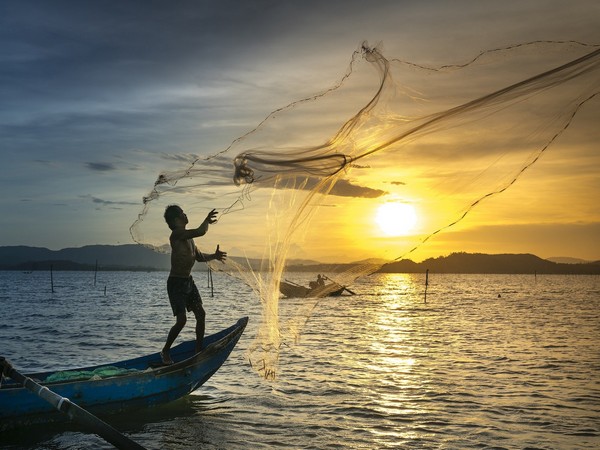India to Launch Onboard E-Observer System to Boost Tuna Data and Exports
Dr. Likhi highlighted that the upcoming e-observer system, being developed by the FSI under the Ministry of Fisheries, will be capable of remotely monitoring fishing operations across multiple vessel types.

- Country:
- India
India is set to strengthen its fisheries data management framework with the introduction of an onboard electronic observer (e-observer) system for remote monitoring and recording of marine fish catches. The initiative, announced by Union Fisheries Secretary Dr. Abhilaksh Likhi, is aimed at generating accurate scientific data for stock assessment and sustainable management of tuna and tuna-like species.
The announcement was made at the inauguration of a five-day global workshop on species identification, jointly organized by the Indian Ocean Tuna Commission (IOTC) and the Fishery Survey of India (FSI). The workshop has drawn fisheries experts and officials from 12 nations, including Japan, France, Thailand, Indonesia, Malaysia, and South Africa, alongside 18 officials from Indian coastal states.
Strengthening Science-Based Fisheries Management
Dr. Likhi highlighted that the upcoming e-observer system, being developed by the FSI under the Ministry of Fisheries, will be capable of remotely monitoring fishing operations across multiple vessel types. This digital monitoring mechanism will meet IOTC guidelines mandating observer coverage and electronic monitoring in tuna fisheries.
“Science-backed, credible data is our strongest defense against non-tariff barriers. It is the passport that secures our access to international markets and protects our fishers and exporters from trade challenges,” the Secretary said.
Technology-Enabled Sustainability
The government has already made strides in technology adoption under the Pradhan Mantri Matsya Sampada Yojana (PMMSY), with nearly 36,000 fishing vessels equipped with transponders for real-time monitoring. The e-observer system will complement this by ensuring precise catch documentation, reducing illegal, unreported, and unregulated (IUU) fishing practices, and supporting long-term resource sustainability.
Tuna and tuna-like species, along with pelagic sharks, are highly migratory resources, requiring regional and international cooperation for effective data collection. India has reaffirmed its commitment to work closely with IOTC member countries for shared management of these critical resources while safeguarding the livelihoods of millions of coastal communities dependent on fishing.
Call for a Fairer Global Quota System
In a parallel intervention, Dr. Grinson George, Director of the Central Marine Fisheries Research Institute (CMFRI), raised concerns over the existing global quota allocation system for commercial tuna fishing, which he said disadvantages developing nations.
“There is an urgent need to revise the current quota framework to ensure a fair and unbiased allocation that accounts for the interests of developing nations like India,” Dr. George emphasized.
He also stressed the importance of cold chain infrastructure to boost tuna exports by preserving product quality, reducing spoilage, and increasing India’s competitiveness in global markets.
International and National Collaboration
Lauren Nelson, representing the IOTC Secretariat, noted that robust data collection and species identification are crucial for reliable stock assessments in tuna fisheries.
The event also saw contributions from senior officials, including Dr. R.S. Maheskumar, Head of the Centre for Marine Living Resources and Ecology (CMLRE), Dr. Sreenath K.R., Director General of FSI, and Dr. Sijo Varghese, Zonal Director of FSI, who emphasized the role of collaborative science in managing shared marine resources.
Towards a Sustainable Fisheries Future
The workshop in Kochi is expected to lay the groundwork for:
-
Advanced species identification tools to support better stock assessments.
-
Capacity building for Indian and regional fisheries managers.
-
Integration of electronic monitoring systems into national and regional fisheries policies.
With India being a major player in global fisheries and the largest exporter of frozen shrimp, the new system represents a decisive step toward strengthening sustainability, transparency, and market credibility.
By combining digital traceability, improved monitoring, and fair trade advocacy, India is positioning itself to not only meet global conservation standards but also to enhance its share in international seafood markets.










